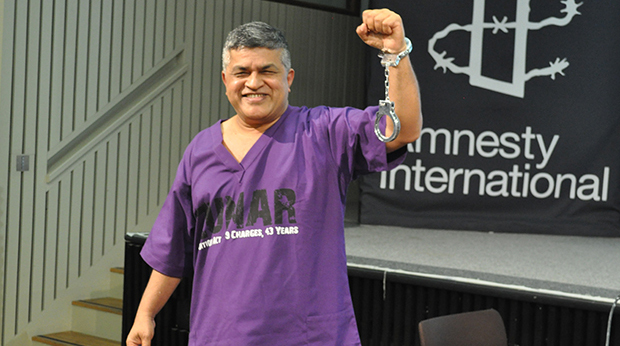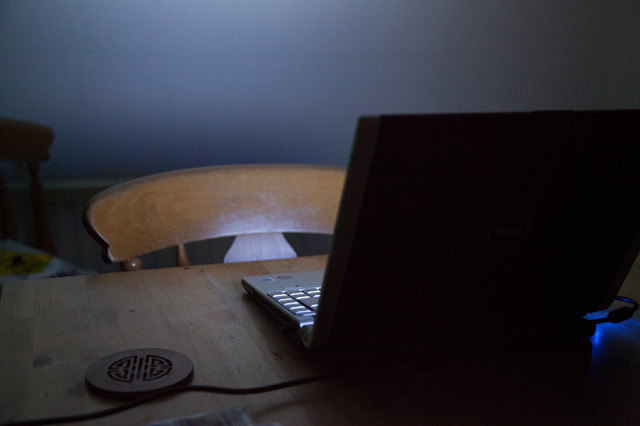25 Oct 2016 | Campaigns, Campaigns -- Featured, Media Freedom, Statements
[vc_row][vc_column][vc_column_text]The following letter was published in The Times on 25 October 2016.
Sir,
The Crime and Courts Act 2013, as it stands, is a danger to a free press. Under the act, a publisher can be ordered to pay both sides’ costs in a dispute if the publisher is not a member of an approved regulator.
Index on Censorship has fought for free speech since 1972, and as publishers ourselves, we will not join a regulator that has to be approved by a body created by the state. This means we – and many other small publishers – could face crippling costs in any dispute, threatening investigative journalism or those who challenge the powerful or the wealthy.
Index has called for cheaper mediation in press disputes as we, like Impress funder Max Moseley and Impress chair, Walter Merricks, believe this is better for free speech. Where we disagree is in the need for a regulator to be recognised by a panel appointed via the state – or for law that makes it, in effect, compulsory to join an approved regulator or face punitive costs.
Yours sincerely,
Jodie Ginsberg
CEO, Index on Censorship[/vc_column_text][/vc_column][/vc_row][vc_row][vc_column][vc_basic_grid post_type=”post” max_items=”4″ element_width=”6″ grid_id=”vc_gid:1483970203305-a92d658b-517d-6″ taxonomies=”8996″][/vc_column][/vc_row]
24 Oct 2016 | Malaysia, News and features

Award-winning Malaysian cartoonist Zunar, who faces up to 43 years imprisonment for tweeting his cartoons criticising his country’s leaders reported on 17 October that he has had a travel ban imposed blocking him from travelling outside the country.
Zulkiflee Anwar Ulhaque, known as Zunar, has faced harassment from the Malaysian government for his political cartoons. Five of his books have been banned in Malaysia and his office has been raided several times, resulting in the confiscation of thousands of his books.
The Malaysian government has banned his books on the grounds that they can “influence the public to revolt against the leaders and government policies” and they are “detrimental to public order.”
Any bookstore, vendor, printer or publisher who agrees to sell the cartoonist’s books also face harassment from the Malaysian government, receiving threats of having their business licenses revoked or their offices raided. Zunar’s books are now printed without the name of the publisher to protect them. Although this is against the law, he has no choice if he wishes to continue publication of his cartoons.
Zunar is being charged under the Sedition Act, which was originally put in place in 1948 to curb opposition to British colonial rule, but the law has remained part of Malaysia’s legal system. The Sedition Act prohibits any behavior that could be deemed detrimental to the government. This outdated law allows the Malaysian government to censor opposition.
His cartoons have covered a wide range of controversial topics in Malaysia, from unsolved murders to political conspiracies. His motto is proudly displayed throughout his website, “How Can I Be Neutral, Even My Pen Has a Stand” emphasising his unfaltering mindset to stand up to the Malaysian government.
Zunar has challenged the Sedition Act and the Malaysian government multiple times in the past. First in 2010 to fight the banning of his books in the country, then in 2011 against the government and police for unlawful arrest and detention. Unfortunately in both cases the courts ruled against him.
Now with a travel ban placed on him by the Malaysian government, Zunar plans to again file a suit to challenge its validity. The cartoonist discovered the ban on 17 October 2016 at the Kuala Lumpur International Airport, though it has been effective since 24 June 2016.
With the court proceedings for Zunar set for 22 November, he faces a maximum of 43 years in prison for tweeting his cartoons. The cartoonist has been imprisoned twice in the past; once for two days in 2010 and again for three days in 2015, both times for violating the Sedition Act. Three of Zunar’s assistants were also arrested in 2014 for selling his cartoons.
Zunar is currently out on bail but is stuck in Malaysia with the threat of 43 years imprisonment ahead of him. Despite this, he remains dedicated to exposing the corruption of the government, stating in an interview with Index on Censorship in 2015, “I will never stop, it is my right as a citizen to express my view and my responsibility as a cartoonist to give alternative views.”
24 Oct 2016 | Volume 45.03 Autumn 2016
[vc_row][vc_column][vc_column_text]
This article is from the autumn issue of Index on Censorship magazine, which focuses on anonymity.
I have a name. I am not anonymous. But what if I didn’t have a name? What if I could enjoy the luxury of being safe at home in Bangladesh, and not far away in Germany?
I could have distanced myself from my identity, adopted a pseudonym and continued to write in Bangladesh. Had I done so, my family wouldn’t have to spend each moment in fear and anxiety. My sister wouldn’t have to wake up from nightmares about rape threats. But I am not anonymous. I carry my name and history with me. And so the possibility of an unnatural death haunts me.
Since 2013, my name has surfaced on multiple “hit lists” targeting Bangladeshi bloggers and other activists. I still regularly receive death threats from religious extremists on Facebook and other social media. One simply told me, “It’s your turn now.”
My words often create problems for others. I see myself as writing for the freedom of various groups, for the rights of oppressed communities, for women, for the sexually marginalised. In my debut book Chastity Versus Polygamy, I addressed the patriarchal notion of purity that is assigned to women’s sexuality; this was considered controversial and it enraged many.
I strongly believe that all human beings possess an equal right to express themselves, to assert their ideas and to be recognised for who they are and what they want to be. When the identity of the writer is out in the open, along with a certain level of insecurity comes a burden of responsibility that commits the writer to his or her words. This is why anonymity never appealed to me. I had faith in the democratic setup of my country, Bangladesh. But the state failed to uphold our freedom by suggesting we should stop writing, rather than that terrorism should stop. So I left.
Anonymous bloggers and activists in Bangladesh come from all parts of the ideological spectrum. They include religious radicals, communists, liberals. Unfortunately, certain sections of this anonymous community aim to create chaos, rather than a constructive democratic debate. A number of them publish hate speech, or post videos which are meant to incite violence.
Generally, however, the bloggers are on the receiving end of aggression. Sometimes, even anonymity is no protection. Those who would silence them are often incredibly adept at technological espionage, and can all too easily crack their identities. In March 2015, anonymous atheist blogger Washiqur Rahman Babu was traced and killed in broad daylight outside his residence. Even I didn’t know his identity at the time.
In the face of threats, therefore, going anonymous is hardly a foolproof solution. However, it may not always be feasible to declare one’s identity under dire circumstances, which is the case in many places across the world right now. Anonymity might turn to be one of the necessary shields in the larger, longer battle for free speech.
This article is from the autumn issue of Index on Censorship magazine.
Ananya Azad, a Bangladeshi writer and blogger, is currently in exile in Germany. His father, author Humayun Azad, was the victim of assassination attempts, and later died in mysterious circumstances.
You can order your copy of the latest issue here, or take out a digital subscription via Exact Editions. Copies are also available at the BFI, the Serpentine Gallery, MagCulture, (London), News from Nowhere (Liverpool), Home (Manchester), Calton Books (Glasgow) and on Amazon. Each magazine sale helps Index on Censorship continue its fight for free expression worldwide.
[/vc_column_text][/vc_column][/vc_row][vc_row][vc_column][vc_custom_heading text=”From the Archives”][vc_row_inner][vc_column_inner width=”1/3″][vc_single_image image=”91922″ img_size=”213×289″ alignment=”center” onclick=”custom_link” link=”http://journals.sagepub.com/doi/pdf/10.1177/030642208701600613″][vc_custom_heading text=”Testimony of an ex-censor” font_container=”tag:p|font_size:24|text_align:left” link=”url:http%3A%2F%2Fjournals.sagepub.com%2Fdoi%2Fpdf%2F10.1177%2F030642208701600613|||”][vc_column_text]June 1987
Once a censor in the Syrian Ministry of Information, the anonymous source details the invasion of privacy and censorship the government employs.[/vc_column_text][/vc_column_inner][vc_column_inner width=”1/3″][vc_single_image image=”80637″ img_size=”213×289″ alignment=”center” onclick=”custom_link” link=”http://journals.sagepub.com/doi/pdf/10.1177/0306422015591456″][vc_custom_heading text=”Blogging in Bangladesh” font_container=”tag:p|font_size:24|text_align:left” link=”url:http%3A%2F%2Fjournals.sagepub.com%2Fdoi%2Fpdf%2F10.1177%2F0306422015591456|||”][vc_column_text]June 2015
A series of murders of secular bloggers by religious fundamentalists in has presented clear warnings for bloggers to watch what they say.[/vc_column_text][/vc_column_inner][vc_column_inner width=”1/3″][vc_single_image image=”89164″ img_size=”213×289″ alignment=”center” onclick=”custom_link” link=”http://journals.sagepub.com/doi/pdf/10.1177/0306422010362466″][vc_custom_heading text=”Egyptian gate to freedom” font_container=”tag:p|font_size:24|text_align:left” link=”url:http%3A%2F%2Fjournals.sagepub.com%2Fdoi%2Fpdf%2F10.1177%2F0306422010362466|||”][vc_column_text]March 2010
Mohamed Khaled reports that the Egyptian government continues to harass bloggers, but they’ve become a vital source of information even for the state media. [/vc_column_text][/vc_column_inner][/vc_row_inner][vc_separator][/vc_column][/vc_row][vc_row][vc_column width=”1/3″][vc_custom_heading text=”The unnamed” font_container=”tag:p|font_size:24|text_align:left” link=”url:%20https%3A%2F%2Fwww.indexoncensorship.org%2F2017%2F09%2Ffree-to-air%2F|||”][vc_column_text]The autumn 2016 Index on Censorship magazine explores topics on anonymity through a range of in-depth features, interviews and illustrations from around the world.
With: Valerie Plame Wilson, Ananya Azad, Hilary Mantel[/vc_column_text][/vc_column][vc_column width=”1/3″][vc_single_image image=”80570″ img_size=”medium” alignment=”center” onclick=”custom_link” link=”https://www.indexoncensorship.org/2016/11/the-unnamed/”][/vc_column][vc_column width=”1/3″][vc_custom_heading text=”Subscribe” font_container=”tag:p|font_size:24|text_align:left” link=”url:https%3A%2F%2Fwww.indexoncensorship.org%2Fsubscribe%2F|||”][vc_column_text]In print, online. In your mailbox, on your iPad.
Subscription options from £18 or just £1.49 in the App Store for a digital issue.
Every subscriber helps support Index on Censorship’s projects around the world.
 SUBSCRIBE NOW[/vc_column_text][/vc_column][/vc_row]
SUBSCRIBE NOW[/vc_column_text][/vc_column][/vc_row]


